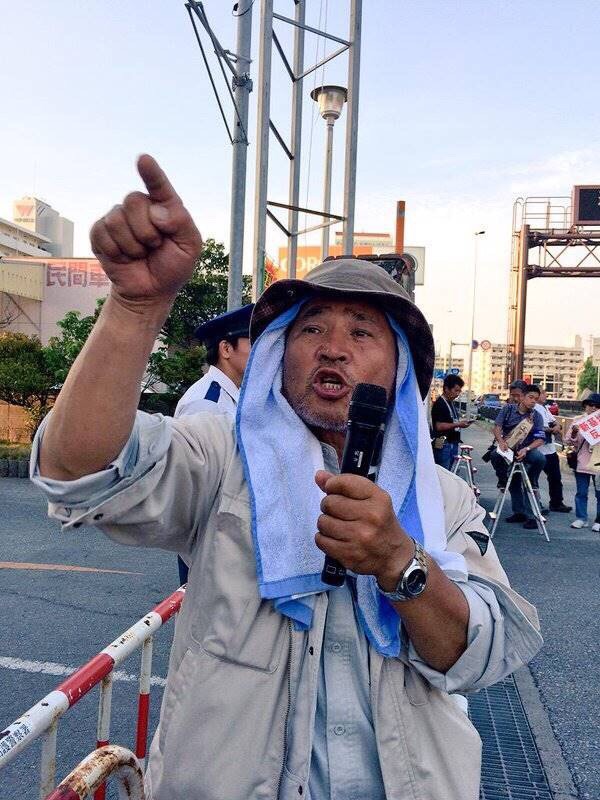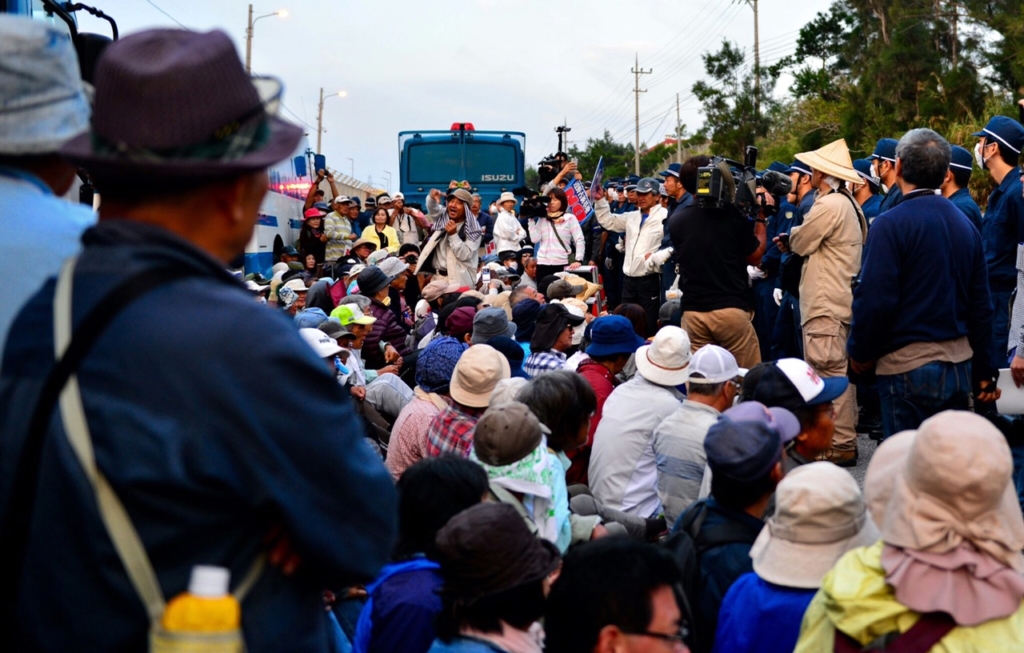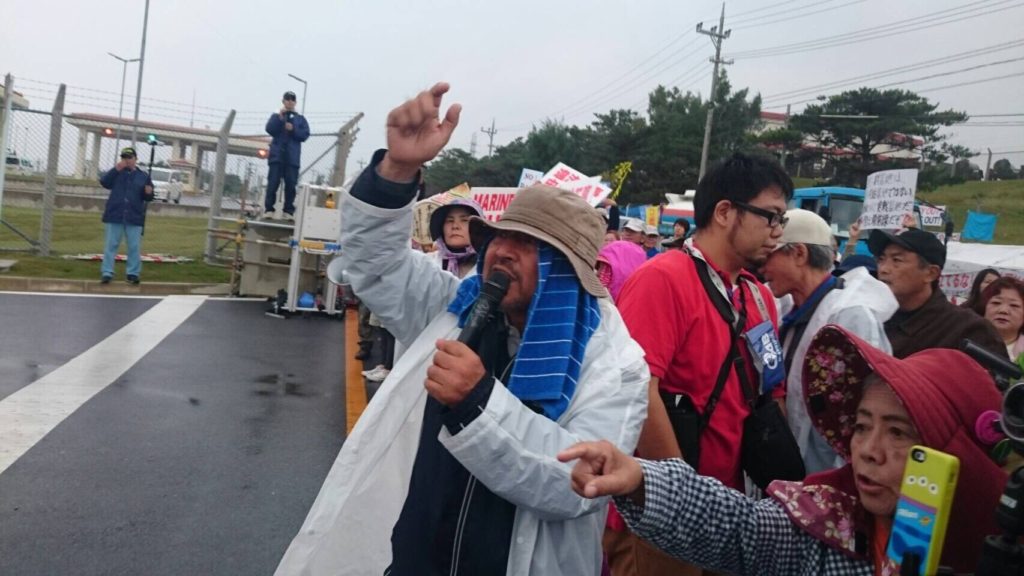It was prominent Okinawa peace activist Hiroji Yamashiro’s first visit to Tokyo since his detention last year, and few were surprised that he came to attend a symposium on Okinawa. He was arrested in October 2016 for his role in protests opposingnew U.S. military construction projects on the Japanese island and was held without due process for five months. He was released on bail in March after Amnesty International issued an Urgent Action in February 2017 calling for his release.

For Tokyo-based supporters who had rejoiced from afar on receiving this news, Hiroji Yamashiro presence at the event was not just symbolic but also deeply meaningful. At the conference, the veteran activist broke out into a protest song, a signature act of his, and vowed to continue his fight for Okinawa. His song was perhaps his way of demonstrating his commitment.
The struggle between the Japanese government and the people of Okinawa goes back centuries. Many insist that the island was a sovereign nation from the 7th to 17th century and activists consider the current situation as a continuation of centuries of occupation by the Japanese government, joined in the immediate years after World War Two by the U.S. armed forces , to annex the land that once belonged to the people of Okinawa. Land rights is therefore one of the main issues of the anti-U.S. military base movement there.
Rather than dampen the movement, his arrest and resulting absence has brought more people together.
Kaoru Yamaguchi, Amnesty International Japan
After years of being part of the movement, Hiroji Yamashiro was appointed in 2004 as the head of the Okinawa Peace Movement Center. His flamboyant style, penchant for belting out songs, performing traditional dances and cracking jokes to cheer up tired demonstrators have helped draw attention to the anti-U.S. military base movement and attracted many to join it over the years. Rather than dampen the movement, his arrest and resulting absence has brought more people together.

Compared to many countries in the region, exercising freedom of speech through protests in Japan is generally accepted and the government does not often bring charges against people who do so. This made Hiroji Yamashiro’s case particularly shocking. During his detention, I met with activists, professors, journalists and politicians, and every single one expressed outrage at the injustice of his detention, while questioning if the arrest was a tacit warning from the government to stop the protests. They all felt the arrest and persecution of the activist was also unfair treatment of Okinawan people. The case was no longer just an individual criminal case but has become a symbol of the struggle of the Okinawan people against an unreasonable Japanese government.
Many NGOs, lawyers and academics beyond those focused on issues in Okinawa have raised their voices against the detention of Hiroji Yamashiro. There has also been media interest in the case beyond Okinawa, with both Japanese and international media outlets reporting on it.
Okinawa is a high-profile tourist destination, and we felt international pressure, especially from the region, would have significant impact on the outcome of his case. This is why Amnesty International Japan actively sought support from local Amnesty membership sections, particularly form the Asia Pacific region.
I have received numerous emails and cards from our members and supporters thanking us for supporting the activist
Kaoru Yamaguchi, Amnesty International Japan
Mobilizing people on a mass scale is really difficult for us as a small section particularly since it is difficult to demonstrate the human rights impact of our efforts. This case however had energized everyone. I have received numerous emails and cards from our members and supporters thanking us for supporting the activist. They are proud of our work and proud of us taking a stand against his detention and the curtailing of his right to protest. A truly grassroots movement has managed to spark not just local but global interest in Okinawa. Hiroji Yamashiro has unified activists and invigorated our work.

When I spoke with him, he conveyed deep appreciation for Amnesty International’s support. He had read about our campaign in the local newspapers and thought that it was critical that Amnesty had stressed that his detention was a human rights violation. Prior to Amnesty’s campaign, his request for release was turned down many times. But right after we renewed our call for his release in February 2017, he was finally released.
Since the day of his release on 18 March, I have received numerous messages of thanks from activists in Okinawa. One read, “Hiroji was just released! I’m crying for joy!”, while another read, “We truly thank you from the bottom of our hearts! Many thanks for your support.” This brings us a lot of satisfaction.
Hiroji Yamashiro’s struggles have not ended. His trial is set for August and we fear that his bail might be revoked. But revitalized by our first victory, Amnesty International Japan will closely monitor the situation and issue words of support whenever needed.
* This blog was update on 31 May 2017, to correct the name of the Okinawa Peace Movement Center.


